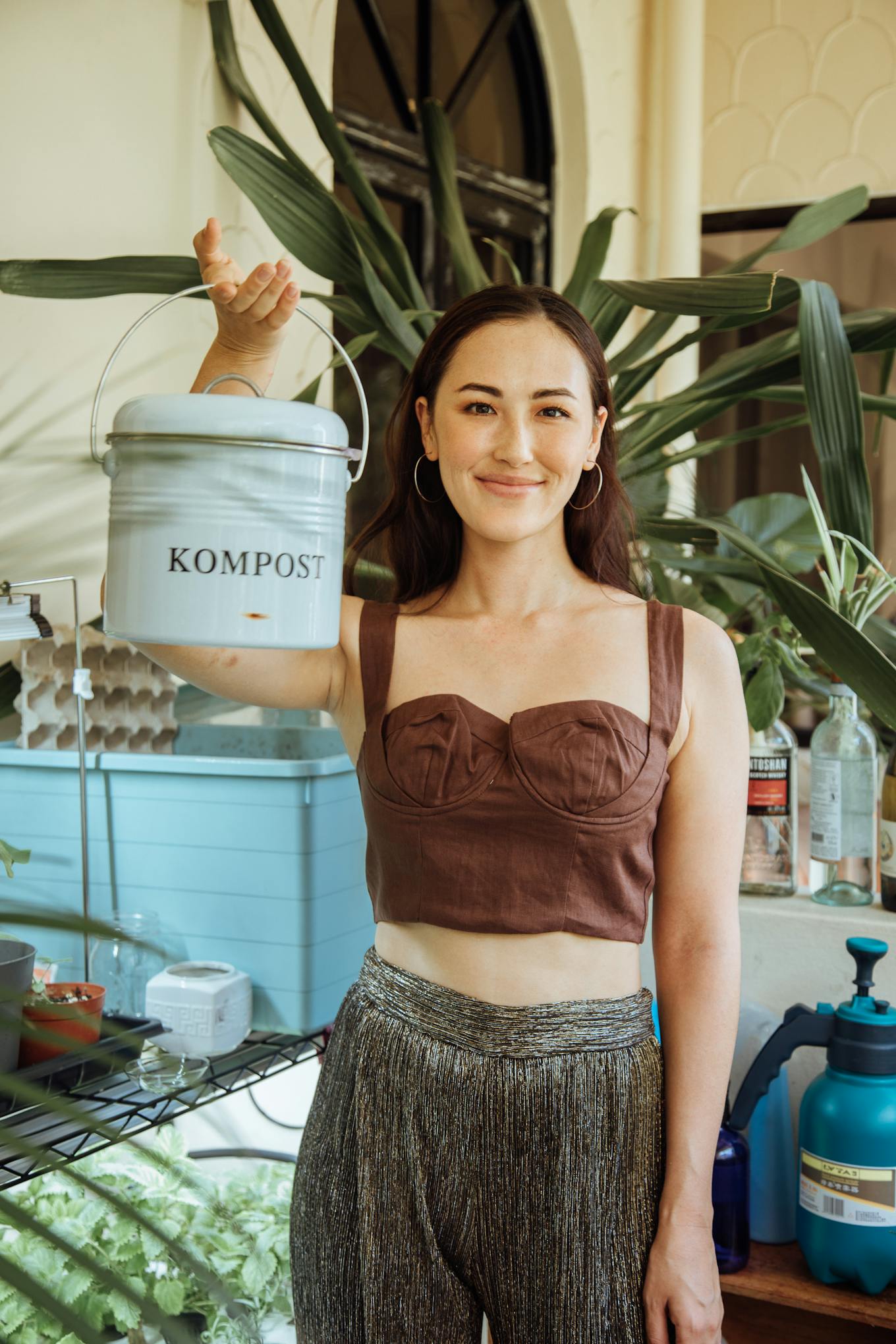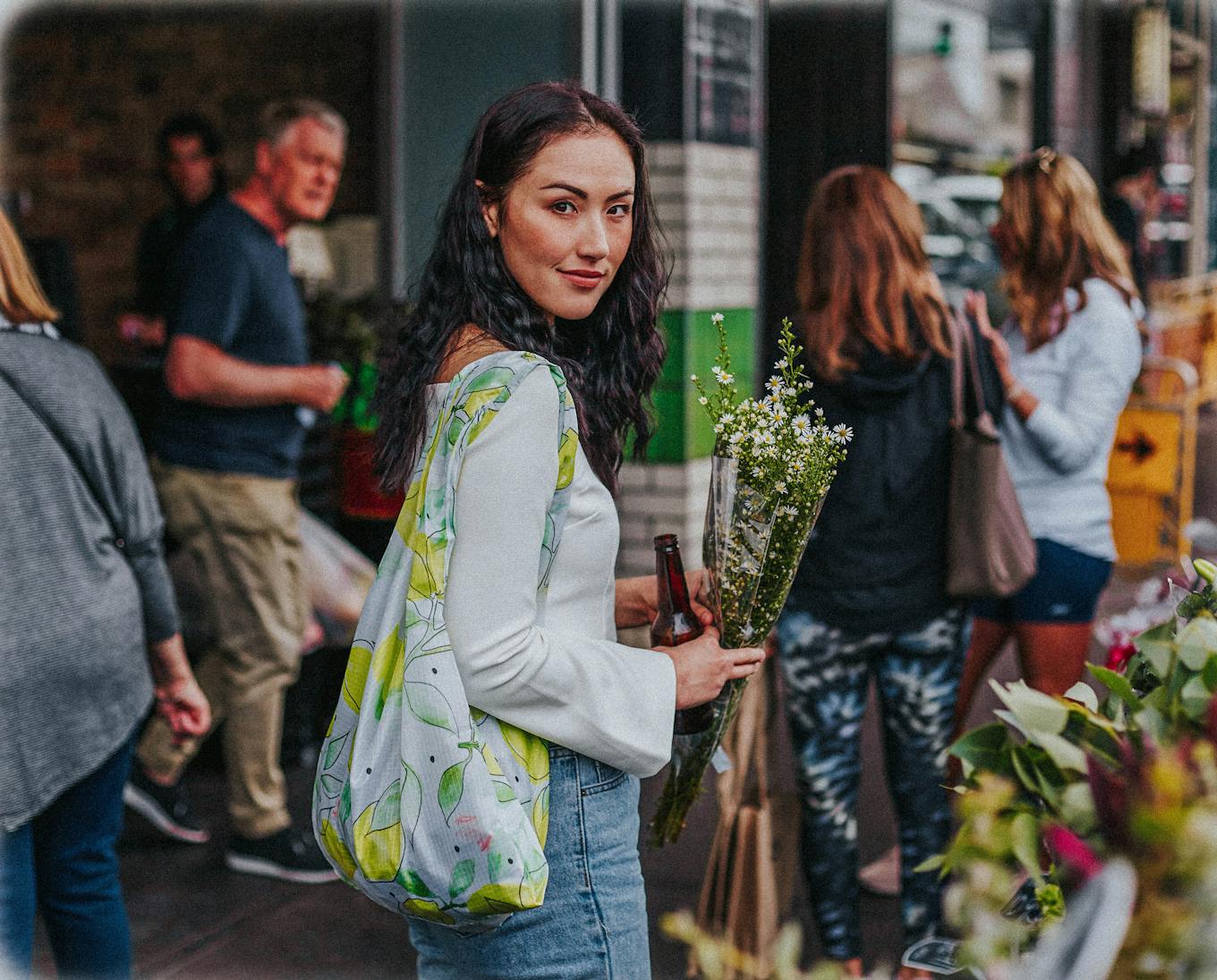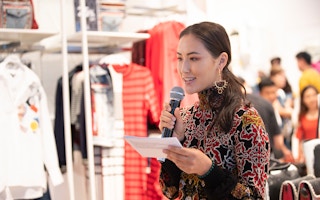Yumika Hoskin first found an audience online as a television network host, actress and model when she moved to Singapore from Australia in 2015. She rapidly amassed more than 44,000 followers on Instagram with glamourous pictures of herself modelling and hosting events.
To continue reading, subscribe to Eco‑Business.
There's something for everyone. We offer a range of subscription plans.
- Access our stories and receive our Insights Weekly newsletter with the free EB Member plan.
- Unlock unlimited access to our content and archive with EB Circle.
- Publish your content with EB Premium.
It wasn’t until years later that she turned her back on her “superficial” online persona to become a sustainability lifestyle influencer.
“When social media goes away, what will people remember you for? For your cute outfit-of-the-day pictures or for giving you something you can change your life with?” she told Eco-Business.
Hoskin says she pivoted to sustainability due to her feeling anxious at seeing so much plastic being used around her. “Once you go down the sustainable lifestyle rabbit hole, it’s all you think of,” she says of her preoccupation with promoting environmentally-conscious living.
Hoskin launched Peco Bags, a reusable bag brand made from recycled polyester in 2018 as a passion project that soon turned into a profitable enterprise. Peco Bags has collaborated with the likes of gin brand Bombay Sapphire, hotel chain Grand Hyatt Singapore and car manufacturer Mini Eurokars for the launch of its electric vehicle.
She is particular about the brands that she works with. “I said no to Shein,” says Hoskin, describing the Chinese women’s clothing retailer as “the devil of fast fashion.” She will only work with ethically-produced brands that align with her values, she says.
In this interview with Eco-Business, Yumika talks about how she has grown her audience, the rules of engagement for the brands she works with, and whether influencers that promote consumption can really describe themselves as sustainable.

Yumika holding compost. Image: Yumika Hoskin
What sort of content does your audience resonate with most?
My content focuses on green living, conscious products and the sustainability causes I believe in. I find a lot of my followers are most interested in tips on how to lead more sustainable lifestyles.
I shared a post about filtering my water using Japanese bincho sticks which are charcoal sticks that absorb impurities like chlorine and toxicity from water. A large number of people saved this.
My measure of success used to be the number of likes and views I got. But now it’s the number of people who saved my posts because they find value in them.
How transparent are you about your brand collaborations?
I barely do any brand collaborations anymore. This is partly because a lot of brands do not align with my values. I heavily vet brands that I collaborate with. The brand has to cater to things I need and use in my personal life, and it must evoke the same sense of authenticity that I hope comes through in my personality.
The way I work is pretty transparent. Even if it’s a paid ad, I consistently incorporate relevant tags and hashtags that clearly indicate my connection with the brand being promoted.
You can tell when an influencer is genuinely interested in a product or if they are signalling interest because it is a paid promotion. If you are a consistent follower of an influencer then their habits become familiar to you and you can tell whether or not their posts are sponsored, usually through their use of hashtags, brand tagging and how they write captions – the tone of captions for sponsored posts tends to be robotic. Influencers also usually use the hashtag #ad if it’s a paid gig.
Have you said ‘no’ to a brand that has approached you?
Yes, I only work with brands that are sustainable and ethically produced. I also support campaigns around conservation and other causes that I’m aligned with.
For instance, I said no to Shein, the devil of fast fashion. I got an email from them about a collaboration, and I immediately blocked and deleted them.
How has your Peco Bags business grown over the past 5 years?
I never intended to grow it into a very successful business. I would be happy to change just a single person’s habits. When they use an eco-friendly bag for their grocery trips, travels, or just as a style statement, a small but meaningful change happens.
I guess social media helped with the growth of Peco Bags. I started getting brand collaborations within the first few months of launching and people were genuinely interested in checking the product out.
We’ve entered into a partnership with a second production company in China while maintaining our existing production partnership in Nepal. This is to cater to the US market, where deliveries are expected quickly. The new partners will be able to do things faster.

Yumika carrying a Peco Bag. Image: Yumika Hoskin
Where do you source your material to make Peco Bags?
Our current production is based in Nepal. Their work is guaranteed according to the standards of the World Fair Trade Organisation (WFTO), which assures one abides by all fair trade principles.
Nepal is a place where labour is exploited. Having said that, my production partners wanted to establish a fair trade company so that they can offer jobs to community members, especially those from hard backgrounds.
The main material used to make a Peco Bag is called an RPT (regenerated polyester) made using recycled plastic bottles. The bottles are melted down, turned into pellets, and converted into polyester yarn. The finished product is assembled in China, where there are high standards for fabric production.
Fashion influencers ultimately promote consumption. So how can a sustainability lifestyle influencer describe themselves as genuinely sustainable?
I think they can, but nobody is perfect. Choosing vintage fashion can help with that. Sixty per cent of my wardrobe is vintage, or secondhand.
I have a friend in New York who goes to a lot of festivals. She loves the crazy costumes and a lot of that stuff comes from Alibaba, AliExpress or Shein. But, this year she won’t be buying more. “You taught me that I shouldn’t be overconsuming,” she told me.
So you might not often hear the validation that you were hoping for, but just changing even one person’s mind is making a change in this world – and that’s what I believe in.














